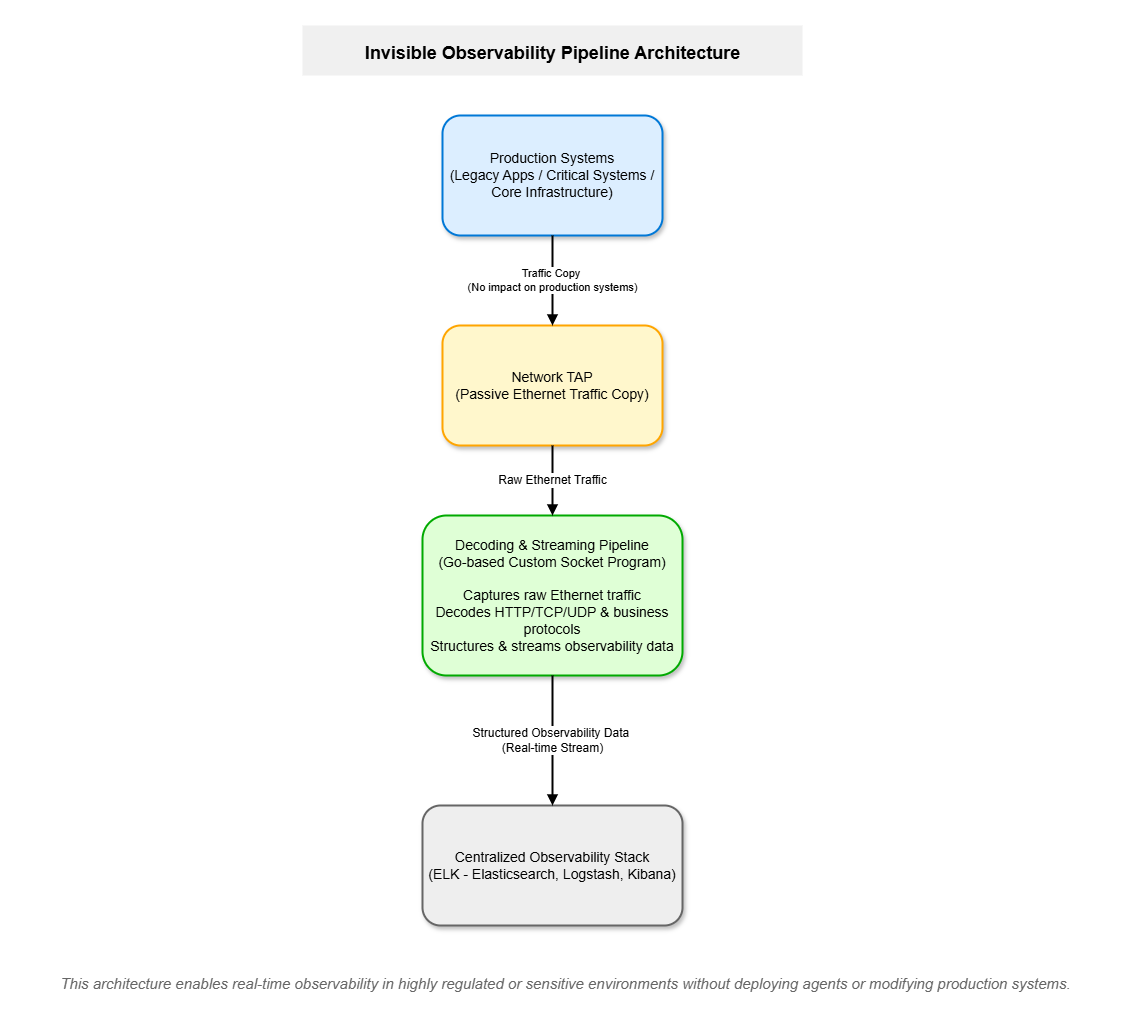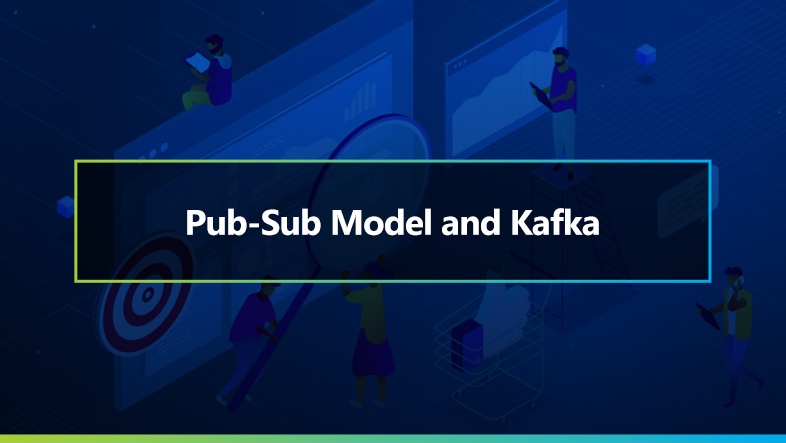

Some systems you can’t touch. Some data you can’t miss. Here’s how we solved both.
In highly regulated and high-performance environments — from financial services to telecom and critical infrastructure — one core technical challenge arises:
How do you tap high-speed, low-latency data from the network and deliver it to application consumers, without modifying production systems?
Our engineering team built a Zero-Footprint Network Data Pipeline that solves this problem. It enables real-time extraction of application-layer messages directly from network traffic, using passive capture methods — with no agents or software installed on the monitored systems.
This architecture supports multiple use cases beyond observability:
- Business event streaming
- Market data processing
- Security analysis
- Legacy system integration
- High-frequency application messaging
The Challenge
In many enterprise environments:
- Agents cannot be installed on production systems (compliance, risk)
- Application instrumentation is not possible (legacy or vendor-provided systems)
- Systems cannot tolerate performance overhead
- Zero-touch policies prohibit system modification
Yet these environments still need:
- High-speed, low-latency extraction of application messages
- Real-time delivery of structured data to downstream consumers
- Support for multiple protocols and message formats
- Scalable architecture for multi-Gbps networks
Our Architecture
- Passive Network Tapping
We use hardware-based Network TAPs to obtain a faithful copy of all network traffic:
- Operates entirely out-of-band
- No load or risk to production systems
- Compliant with strict security and regulatory requirements
- High-Performance Decoding Pipeline
We engineered a custom decoding pipeline optimized for low latency and high throughput:
- Captures raw Ethernet traffic at wire speed
- Identifies and parses relevant application-layer protocols (HTTP/S, FIX, proprietary, custom)
- Extracts business-relevant messages and transactional flows
- Structures data into clean formats for downstream consumption
- Operates with sub-second latency, even at multi-Gbps speeds
- Data Streaming to Application Consumers
Decoded application messages are streamed in real time to:
- Business event processing systems
- Market data engines
- Analytics platforms
- Data warehouses / data lakes
- Custom application consumers via message buses or APIs
The architecture is fully agnostic of the downstream consumer stack — supporting multiple broker and message delivery patterns.
Why This Matters
- Zero-footprint: No agents or software on monitored systems
- High-speed: Multi-Gbps throughput with sub-second latency
- Protocol-agnostic: Supports standard and proprietary application protocols
- Secure & compliant: Designed for sensitive, regulated environments
- Flexible: Decouples network capture from downstream consumers (supports many use cases beyond observability)
Example Use Cases
- Financial services: Streaming FIX protocol messages and market data for trading and compliance
- Telecom: Extracting subscriber session messages from core network traffic
- Government / Defense: Tapping transactional flows from air-gapped or classified systems
- Critical infrastructure: Streaming application messages from legacy OT networks
- Enterprise messaging: Feeding real-time application data to analytics and ML pipelines
A Universal Pattern for Real-Time Data Streaming
Agent-based techniques and application instrumentation are powerful but not always applicable.
In contrast, network-based passive tapping with high-performance decoding enables enterprises to stream real-time application messages from any system — with zero impact and full compliance.
Our architecture makes this possible:
- It decouples data extraction from production systems
- It supports multiple protocols and message formats
- It feeds a wide range of downstream consumers — not just observability stacks, but business and application platforms as well
If your organization is exploring high-speed, low-latency application messaging pipelines built on passive network capture, we’d be happy to share more of our experience.






